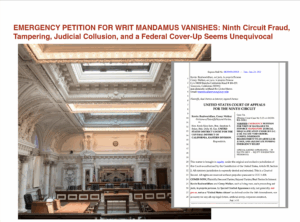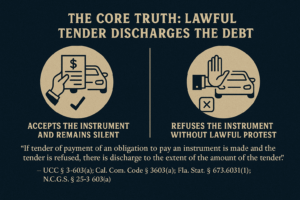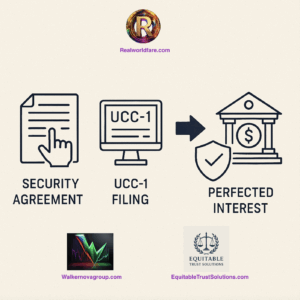In order for you to understand the full import of what is happening, I must explain certain laws to you and what a citizen of the United States is truly considered. We make no claims except as supported by Law.
When passing new statutes, the Federal government always does everything according to the principles of law. In order for the Federal Government to tax a Citizen of one of the several states, they had to create some sort of contractual nexus. This contractual nexus is the “Social Security Number”.
In 1935, the federal government instituted Social Security. The Social Security Board then created 10 Social Security “Districts”. The combination of these “Districts” resulted in a “Federal area” which covered all the several states like a clear plastic overlay.
In 1939, the federal government instituted the “Public Salary Tax Act of 1939”. This Act is a municipal law of the District of Columbia for taxing all federal and state government employees and those who live and work in any “Federal area”.
Now, the government knows it cannot tax those state Citizens who live and work outside the territorial jurisdiction of Article 1, Section 8, Clause 17 (1:8:17) or Article 4, Section 3, Clause 2 (4:3:2) in the U.S. Constitution. So, in 1940, Congress passed the “Buck Act”, 4 U.S.C.S. Sections 105-113. In Section 110(e), this Act authorized any department of the federal government to create a “Federal area” for imposition of the “Public Salary Tax Act of 1939”. This tax is imposed at 4 U.S.C.S. Sec. 111. The rest of the taxing law is found in the Internal Revenue Code. The Social Security Board had already created a “Federal area” overlay:
4 U.S.C.S. Sec. 110(d). The term “State” includes any Territory or possession of the United States.
4 U.S.C.S. Sec. 110(e). The term “Federal area” means any lands or premises held or acquired by or for the use of the United States or any department, establishment, or agency of the United States; and any Federal area, or any part thereof, which is located within the exterior boundaries of any State, shall be deemed to be a Federal area located within such State.
There is no reasonable doubt that the federal “State” is imposing an excise tax under the provisions of 4 U.S.C.S. Section 105, which states in pertinent part:
Sec. 105. State, and so forth, taxation affecting Federal areas; sales or use tax
(a) No person shall be relieved from liability for payment of, collection of, or accounting for any sales or use tax levied by any State, or by any duly constituted taxing authority therein, having jurisdiction to levy such tax, on the ground that the sale or use, with respect to which such tax is levied, occurred in whole or in part within a Federal area; and such State or taxing authority shall have full jurisdiction and power to levy and collect any such tax in any Federal area within such State to the same extent and with the same effect as though such area was not a Federal area.
Irrespective of what the tax is called, if its purpose is to produce revenue, it is an income tax or a receipts tax under the Buck Act [4 U.S.C.A. Secs. 105-110].
Humble Oil & Refining Co. v. Calvert, 464 SW 2d. 170 (1971),
affd (Tex) 478 SW 2d. 926, cert. den. 409 U.S. 967, 34 L.Ed.
2d. 234, 93 S.Ct. 293.
Thus, the obvious question arises: What is a “Federal area”? A “Federal area” is any area designated by any agency, department, or establishment of the federal government. This includes the Social Security areas designated by the Social Security Administration, any public housing area that has federal funding, a home that has a federal bank loan, a road that has federal funding, and almost everything that the federal government touches through any type of aid. Springfield v. Kenny, 104 N.E. 2d 65 (1951 App.). This “Federal area” attaches to anyone who has a Social Security Number or any personal contact with the federal or state governments. Through this mechanism, the federal government usurped the Sovereignty of the People, as well as the Sovereignty of the several states, by creating “Federal areas” within the boundaries of the states under the authority of Article 4, Section 3, Clause 2 (4:3:2) in the federal Constitution, which states:
2. The Congress shall have Power to dispose of and make all needful Rules and Regulations respecting the Territory or other Property belonging to the United States, and nothing in this Constitution shall be so construed as to prejudice any claims of the United States, or of any particular State.
Therefore, all U.S. citizens [i.e. citizens of the District of Columbia] residing in one of the states of the Union, are classified as property, as franchisees of the federal government, and as an “individual entity”. See Wheeling Steel Corp. v. Fox, 298 U.S. 193, 80 L.Ed. 1143, 56 S.Ct. 773. Under the “Buck Act”, 4 U.S.C.S. Secs. 105-113, the federal government has created a “Federal area” within the boundaries of all the several states. This area is similar to any territory that the federal government acquires through purchase, conquest or treaty, thereby imposing federal territorial law upon all people in this “Federal area”. Federal territorial law is evidenced by the Executive Branch’s yellow-fringed U.S. flag flying in schools, offices and all courtrooms.
You must live on land in one of the states in the Union of several states, not in any “Federal State” or “Federal area”, nor can you be involved in any activity that would make you subject to “federal laws”. You cannot have a valid Social Security Number, a “resident” driver’s license, a motor vehicle registered in your name, a “federal” bank account, a Federal Register Account Number relating to Individual persons [SSN], (see Executive Order Number 9397, November 1943), or any other known “contract implied in fact” that would place you within any “Federal area” and thus within the territorial jurisdiction of the municipal laws of Congress. Remember, all acts of Congress are territorial in nature and only apply within the territorial jurisdiction of Congress. (See American Banana Co. v. United Fruit Co., 213 U.S. 347, 356-357 (1909); U.S. v. Spelar, 338 U.S. 217, 222, 94 L.Ed. 3, 70 S.Ct. 10 (1949); New York Central R.R. Co. v. Chisholm, 268 U.S. 29, 31-32, 69 L.Ed. 828, 45 S.Ct. 402 (1925).)
There has been created a fictional Federal “State within a state”. See Howard v. Sinking Fund of Louisville, 344 U.S. 624, 73 S.Ct. 465, 476, 97 L.Ed. 617 (1953); Schwartz v. O’Hara TP. School Dist., 100 A. 2d. 621, 625, 375 Pa. 440. (Compare also 31 C.F.R. Parts 51.2 and 52.2, which also identify a fictional State within a state.) This fictional “State” is identified by the use of two-letter abbreviations like “CA”, “AZ” and “TX”, as distinguished from the authorized abbreviations like “Calif.”, “Ariz.” and “Tex.”, etc. This fictional State also uses ZIP codes which are within the municipal, exclusive legislative jurisdiction of Congress.
This entire scheme was accomplished by passage of the “Buck Act”, 4 U.S.C.S. Secs. 105-113, to implement the application of the “Public Salary Tax Act of 1939” to workers within the private sector. This subjects all private sector workers who have a Social Security number to all state and federal laws “within this State”, a “fictional Federal area” overlaying the land in California and in all other states in the Union. In California, this is established by California Form 590, Revenue and Taxation. All you have to do is to state that you live in California. This establishes that you do not live in a “Federal area” and that you are exempt from the Public Salary Tax Act of 1939 and also from the California Income Tax for residents who live “in this State”.




